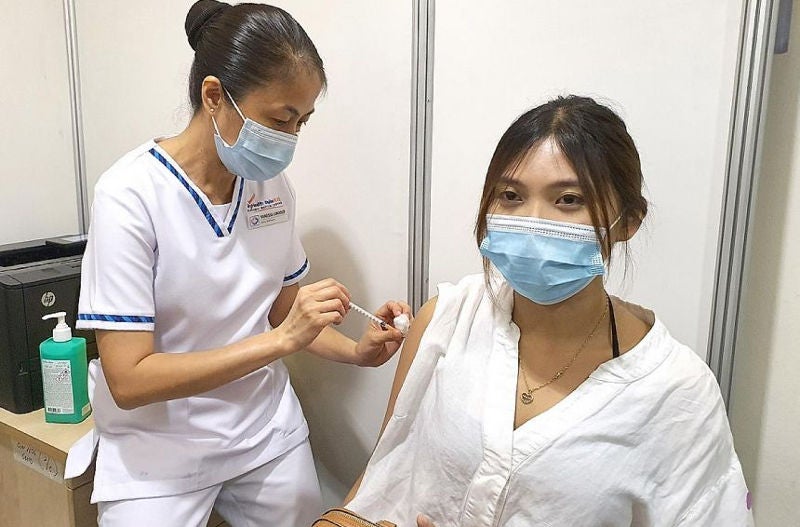
The jabs will be spaced at least two weeks apart from other shots that pregnant women typically receive duringpregnancy. PHOTO: KK WOMEN'S AND CHILDREN'S HOSPITAL
SINGAPORE - KK Women's and Children's Hospital (KKH) has started inoculatingpregnant patients against Covid-19, with the first six women getting their jabs on Tuesday (June 8).
The move comes after the Health Ministry (MOH) announced that it would allow pregnant women to book vaccination appointments from June 4, following a review of real-world clinical data of vaccination in this group.
The ministry added that women should discuss vaccination with their doctors, even though there is currently no evidence to suggest that either the Pfizer-BioNTech or Moderna vaccine could harm pregnant women or their babies.
This is because the amount of data collected for this group "is still much smaller compared to data on the general population", it said.
Associate Professor Tan Hak Koon, who chairs KKH's obstetrics and gynaecology division, said women who are in at least their 13th week of pregnancy are eligible for vaccination.
The jabs will be spaced at least two weeks apart from other vaccinations that they typically receive during pregnancy, such as the influenza and whooping cough jabs.
They are being administered in hospital, rather than at vaccination centres in the community, so that obstetricians are on hand to advise the women about vaccination and monitor them after their jabs.
Pregnant women who contract Covid-19 are more likely to develop severe symptoms, which may result in them being warded in the intensive care unit or puton oxygen therapy, Prof Tan added. Their babies also face an increased chance of being stillborn or born early, although the overall risks remain relatively low.
For instance, one British study of more than 340,000 women found that 12 per cent of those who tested positive for Covid-19 when admitted to give birth had premature babies, compared with 5.8 per cent who were clear of the virus.
One of those who was vaccinated at KKH on Tuesday was 28-year-old Suzanna Farid Tang Shu Ling, who is 26 weeks pregnant with her second child.
The founder of ground-up initiative Urban Origins decided to do so after reading upabout the increased risk of severe illness that infected pregnant women face, as well as the potential protection vaccination might confer on her unborn child.
"At the session, there were many doctors and nurses around," she said. "At any point in time, if I had a question, I could just speak to one of them."
Another expectant mother, childcare teacher Noriyah Abdul Rahman, said she chose to get vaccinated to protect herself and her unborn child.
"At first, I was frightened of what to expect after the vaccination - if I would have any immediate reaction," said the 43-year-old, who has a drug allergy. But the vaccination process went smoothly, she added.
KKH is also looking to study whether antibodies produced by the mother after vaccination are transferred to the baby, a phenomenon that has been reported overseas.
"By right, the baby should have some passive protection from Covid-19," Prof Tan said. "The question is: How much is transferred, whether this really gives protection, and for how long?"
Source: The Straits Times © Singapore Press Holdings Limited. Reproduced with permission.
---------------------------------------------------------------------------------------------------------------------------














 Get it on Google Play
Get it on Google Play